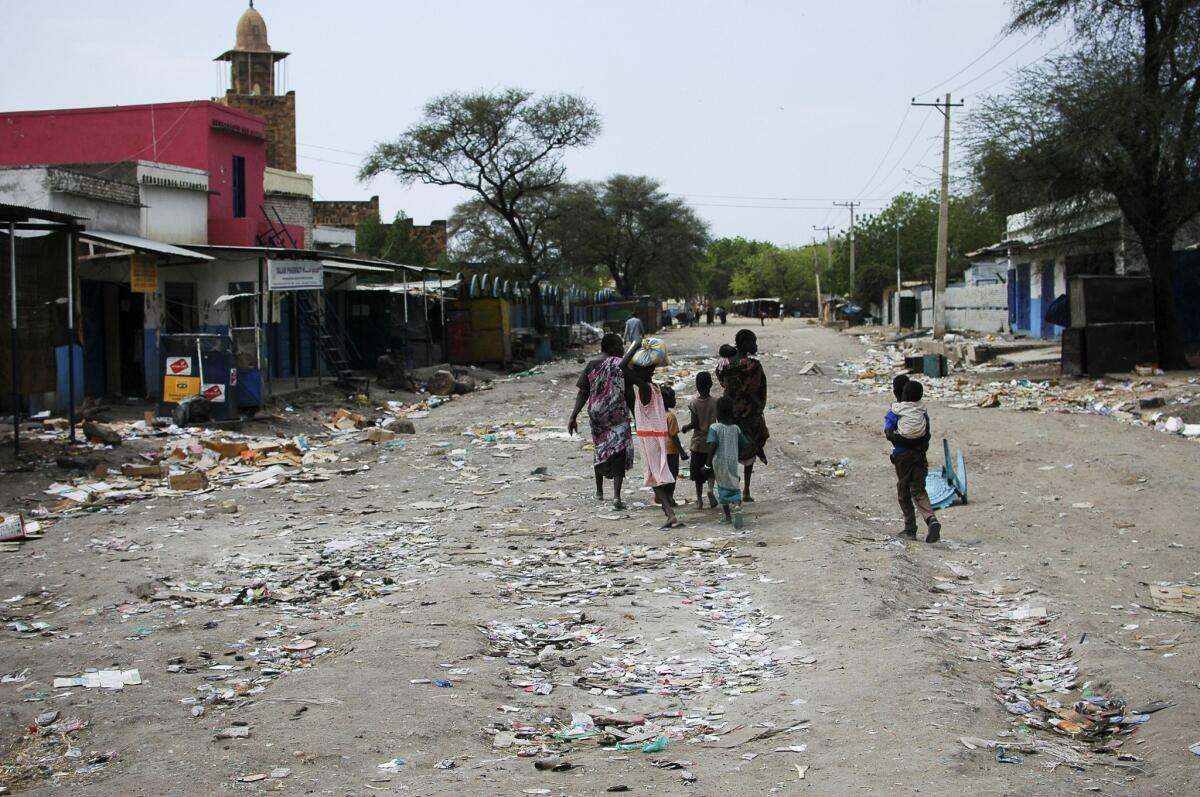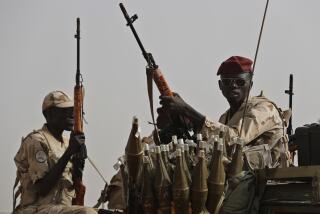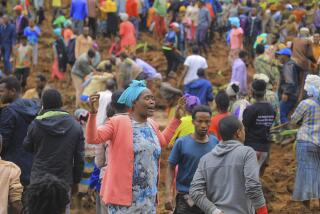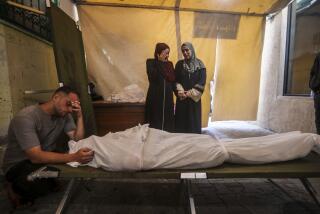Fighting erupts in key South Sudan oil town

JOHANNESBURG, South Africa -- In a major setback to peace efforts in South Sudan, fighting erupted Tuesday in the key town of Malakal in Upper Nile state, the only region still producing the oil that the government relies on for more than 98% of its revenue.
South Sudan’s government and rebels led by dismissed Deputy President Riek Machar agreed to a cease-fire last month. But sporadic firefights have continued in the north of the country, and each side accuses the other of violating the deal.
Talks between the government and rebels resumed last week in the Ethiopian capital, Addis Ababa, but have stalled.
Fighting broke out on Dec. 15, triggered by a struggle in the governing Sudan People’s Liberation Movement, between President Salva Kiir and opponents who announced plans to contest the leadership of the party.
Kiir sacked his deputy, Machar, and the entire Cabinet, citing corruption, as opponents accused him of dictatorial tendencies. The power struggle triggered horrific ethnic killings in much of the country, targeting civilians, including many women and children.
Toby Lanzer, the United Nations’ humanitarian co-coordinator in South Sudan, confirmed the new hostilities in a tweet Tuesday.
“Hostilities have this morning broken out in #Malakal: all parties engaged in the violence must uphold people’s rights & protect non-combatants,” he said.
An estimated 10,000 people have died in the violence, and 850,000 people have fled their homes, creating a mounting humanitarian catastrophe. The U.N. has appealed for nearly $1.3 billion in aid to respond, but has raised only a fraction of the amount, with a billion dollars outstanding.
Malakal has changed hands several times in the fighting, with its market and hundreds of houses burned down and a U.N. humanitarian aid compound looted. The town is strategic because of its proximity to oil fields.
If the fighting spreads and closes down Upper Nile oil production, South Sudan’s government will face a cash crisis, raising questions about how it would pay its army. In December, the army split between Kiir loyalists and followers of Machar.
South Sudan’s government already had to embark on austerity measures when it shut down oil production for more than a year in a dispute with its northern neighbor, Sudan, over transit fees. The government relies on donors to deliver most health and education services.
Any additional interruption of South Sudan’s oil production would further unsettle investors, who just two months ago were lining up at an investment conference organized by the government but were spooked by the December fighting.
Peace talks stalled over Kiir’s refusal to release four former ministers he accused of launching a coup with Machar. Machar rejects the charge, saying he launched his rebellion only after Kiir’s false coup claims.
The four ministers have been charged with treason, but the Untied States and other donors have called for their release to enable the talks to proceed.
Each side accused the other of starting the fighting Tuesday.
Twitter: @latimesdixon
More to Read
Sign up for Essential California
The most important California stories and recommendations in your inbox every morning.
You may occasionally receive promotional content from the Los Angeles Times.










